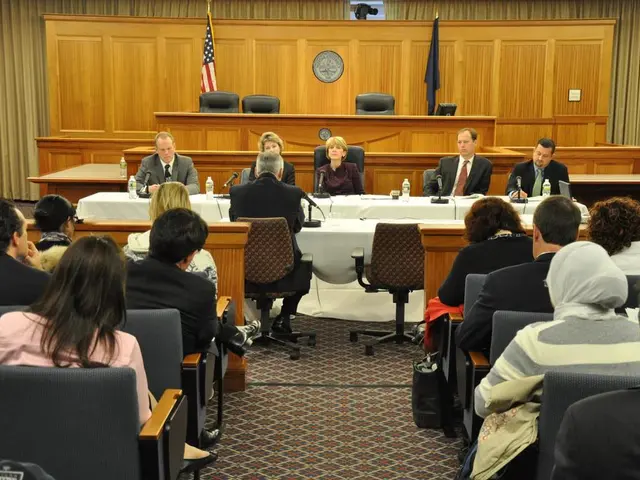Strategies and Implementation Strategies that Catalyze Urban Migration Life
Stepping Stones for Migrant Integration
Navigating the challenges that face newcomers in a foreign land can be a daunting task. The more vulnerable their situation and precarious their legal status, the more obstacles they encounter. Social and structural barriers and discrimination make it difficult for migrants to integrate easily. Fortunately, there are change-makers in the urban realm ready to ease this process. In this quick reference guide, we explore mechanisms and policy recommendations that have been identified by research prompted by JPI Urban Europe's Urban Migration call, which examines how immigration impacts the lives and function of cities, and vice versa.
Integration Pathways
infrastructure is the cornerstone on which migrants navigate their new urban surroundings and forge a sense of belonging. The right policies can aid and facilitate this, supporting migrants as independent contributors to society.
Language and Communication
Effective communication is essential for inclusion and social connection. Information should be widely available in a variety of formats, including multilingual, digital, and analogue. Local language proficiency is crucial, making language courses a valuable resource, regardless of one's legal status. Informal translation is unreliable, so public-facing services such as healthcare and legal advice should include professional interpretation. To help address gender and cultural sensitivities, female interpreters should be readily available, as should gender-sensitive counseling.
Education and Skills
Speaking the local language opens doors to job opportunities. However, many arrivals are highly skilled. Strategies for further career development are essential. Cities could commit to a transition-friendly policy by investing in green jobs, training programs that retrain and upskill the unemployed. Refugees and asylum seekers, particularly women, should be a priority for these programs, as they tend to have lower levels of education and skill than other migrant groups. Additionally, legislation could be introduced that allows asylum seekers to work before they are granted residency. To reduce the attainment gap between migrant children and their native counterparts, a 'child-first, migrant-second' education policy could be adopted, ensuring free education for all, regardless of legal status. Even covering basic costs like providing free school uniforms can help lessen the financial burden on low-income families and promote a sense of belonging for all students.
Finding a Home
Research has shown that there is no coordinated approach across Europe to addressing housing shortages. To improve migrants' access to essential urban resources and participation in city society, planning policies should prioritize long-term solutions.
Affordability
Municipal Solidarity Funds can help destitute migrants pay deposits for accommodation and furnish rooms. Regulation and tenancy laws can also help address affordability issues, such as limiting price increases in the private rental market and capping fixed charges for social housing. Innovative concepts like mutual exchange and Community Land Trusts can be explored, providing protections against administrative or transit costs and rent hikes. Transparency should be a priority across the board, with municipal social housing doing away with hidden charges. Limits can be imposed on unreasonable up-front or additional payments, such as estate agent commissions.
Incentives & Availability
Private landlords can be incentivized to open their properties to migrants through offers like free house insurance. Penalties, like the vacancy tax in Vancouver, Canada, could be implemented to prevent homes from sitting empty when there's a shortage.
Security
Landlords should be obligated to maintain properties, minimizing tenants' exposure to unhealthy living conditions. Banning no-fault evictions, introducing rent caps, strengthening tenant rights, and providing safe housing options for refugees are other ways to boost residents' stability and contentment.
Collaborative Spaces
A city's true essence lies in its people and their use of space. Urban places have traditionally been built by men, often prioritizing car accessibility. To create a more inclusive and equitable urban environment, intersectionality and gender mainstreaming should guide planning priorities. For migrants to truly feel a sense of belonging, their input and participation in the creation and use of community spaces is essential. Research has shown that promoting participation, placemaking, and sharing practices promotes a stronger sense of belonging.
Institutional Policies
To combat discriminatory and exclusionary practices, local authorities should:
- Strive to cultivate a positive, empathetic environment, especially for forced migrants.
- Collaborate with NGOs on strategies to address migrant issues.
- Ensure confidentiality in dealing with migrants' data.
- Adopt inclusive practices within their own institutions.
An almost universal recommendation is the need for continued research and funding to build on the existing body of knowledge and create more effective policies for migrant integration. As the future of our cities and their diverse populations are intrinsically linked, fostering inclusivity is essential.
- Policy initiatives focused on education and self-development, such as investing in green job training programs and promoting a 'child-first, migrant-second' education policy, can help migrants attain skills and opportunities that facilitate their social integration.
- In the realm of policy and legislation, establishing measures like supporting affordable housing options, ensuring professional interpretation in public services, and adopting inclusive institutional practices can create a more welcoming urban environment for migrants, fostering a sense of belonging and ownership.






